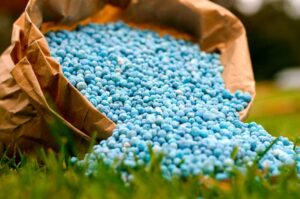
In January-April 2025, Ukrainian enterprises imported copper and copper products worth $61.62 million, which is 16.2% more than in the same period of 2024. Exports grew by 16.1% to $29.13 million. In April, imports amounted to $15.13 million, while exports amounted to $7.78 million.
Copper is widely used in electrical engineering, pipe manufacturing, alloy production, medicine, and other industries.

Imports of transformers, inductors, and chokes to Ukraine in January-April 2025 increased 2.5 times compared to the same period in 2024, reaching $338 million, according to statistics from the State Customs Service.
According to published data, during this period, products were imported mainly from China, worth $279 million (82.5% of all imports of these goods), while a year earlier, transformers and chokes worth $66.1 million (48.4%) were imported from this country, i.e., imports increased 4.2 times.
In addition, transformers were imported from Germany ($17.4 million) and Turkey ($13.9 million), while in January-April 2024, imports from Turkey amounted to $37.1 million, and from Italy – almost $5 million. In particular, in April, imports of this equipment increased by 50% compared to the same month last year, but decreased by 22.3% compared to March this year, to $55.2 million. China’s share was 48.7%.
At the same time, Ukraine exported transformers, inductors, and chokes worth $8.37 million in the first four months of this year, compared to $5.64 million last year, mainly to Germany, Hungary, and Poland.
According to the State Customs Service, imports of transformers, inductance coils, and chokes in 2024 more than doubled compared to 2023, reaching $596.11 million, with imports from China increasing 2.5 times to $400.48 million.

Tractor imports to Ukraine in January–April 2025 amounted to $294.2 million, which is 2.6% less than in the same period of 2024, according to statistics from the State Customs Service (SCS).
According to published statistics, tractors were mainly imported from the United States (21.3% of total imports of this equipment, or $62.5 million), Germany (16.8% or $52.2 million), and China (16% or $47.3 million), while a year earlier it was Germany ($49.34 million), the Netherlands ($38.6 million), and Poland ($37 million).
In April of this year, tractor imports decreased by 2.1% compared to April 2024, to $85.1 million, while in March, the increase was 13.3% compared to March 2024, amounting to $98.62 million.
According to statistics, only $1.63 million worth of tractors were exported in the first four months of this year, mainly to Romania, Zambia, and Germany.
As reported, tractor imports to Ukraine in 2024 amounted to almost $784 million, 5.6% less than a year earlier, while exports amounted to $5.44 million compared to $5.74 million.

In January-April 2025, truck imports to Ukraine decreased by 4.3% in monetary terms compared to the same period in 2024, to $286.56 million, according to statistics from the State Customs Service (SCS).
According to the published data of the SCS, in April, imports of this type of vehicle decreased by 12.2% compared to April 2024, to $71.31 million.
The largest number of trucks in four months was imported from the US – $64.09 million (22.4% of imports), Poland – $61.77 million (21.2%), and France – $46.03 million (16%).
A year ago, the top three truck suppliers were Poland (23.2% of total truck imports, or $69 million), the US (11%, or $33.4 million), and China (10.1%, or $30.2 million).
Imports from all other countries in January-April decreased by 30.6% to $115.7 million.
At the same time, according to statistics, Ukraine exported only $2.73 million worth of trucks in four months, mainly to Romania (57.3% of exports of such vehicles), Turkey, and Moldova, while a year earlier, exports were even more insignificant ($1 million).
As reported, in 2024, imports of trucks to Ukraine in monetary terms increased by 30% compared to 2023, to $947.84 million, with the largest share coming from Poland (almost 20%).

The possibilities for increasing exports of Ukrainian mineral fertilizers and controlling their imports, in particular preventing the import of fertilizers from the aggressor country through other countries, were discussed by the Minister of Agrarian Policy and Food of Ukraine, Vitaliy Koval, at a working meeting with representatives of domestic mineral fertilizer producers at the ministry, according to a press release on the ministry’s website.
“This meeting was supposed to answer the question of how to increase exports of Ukrainian fertilizers to Africa, Asia, and further to the EU. Representatives of Ostchem (the largest producer of nitrogen fertilizers) and the Union of Chemists of Ukraine were unanimous at this meeting: imports remain the key problem,” said Oleg Arestarkhov, director of corporate communications at Group DF, to the Interfax-Ukraine news agency.
According to him, it is imports that prevent Ukrainian companies from expanding production and increasing exports, primarily imports from countries of the former Soviet Union, which have a single market with Russia: Kazakhstan, Uzbekistan, Turkmenistan, and Azerbaijan, which account for almost half (300,000 tons) of all nitrogen fertilizer imports.
“They have access to cheap gas, so they can dump prices. Total imports of nitrogen fertilizers in the first four months of 2025 amounted to 1.2 million tons, of which 689,300 tons were nitrogen fertilizers. For comparison, Ukrainian production for the four months will be about 500,000 tons,” Arestarkhov said.
He added that Ukraine is losing the urea market, and a new trend is that China has begun to actively supply low-quality cheap ammonium sulfate.
According to the Ostchem representative, due to growing imports, Ukrainian enterprises are operating at the break-even point, which is holding back capital investment in industrial sites and forcing them to lay off workers.
An additional problem for Ukrainian producers is Russian shelling, after which Ostchem had to shut down its workshops several times in the first quarter due to damage to the external gas and energy infrastructure.
“It is logical that we are waiting for support from the government. We spoke openly about this at the meeting and provided them with all the statistics. The dominance of imports is one of the reasons for the decline in the industry. This is also the reason why Dniproazot and the state-owned Odesa Port Plant cannot start production. If the government lends a helping hand, it will see an increase in exports,” Oleksiy Golubov, president of the Ukrainian Chemists’ Union, told the Interfax-Ukraine news agency.
In turn, Minister Koval emphasized the instructions of Ukrainian President Volodymyr Zelenskyy to expand the geography of exports, in particular to the Middle East and Africa, as well as to open a mineral fertilizer hub in South Africa and develop trade between the two countries.
“Ukraine has all the prerequisites for mineral fertilizers to become not only a means of strengthening food security within the country, but also a strategic export commodity,” said the head of the Ministry of Agrarian Policy.
According to the press release, representatives of investment companies, including umgi, also participated in the meeting.

In April 2025, Ukraine doubled its electricity exports compared to March, reaching 151.6 thousand MWh, while imports fell by almost a third to 187 thousand MWh, according to the Ukrainian energy and climate think tank DiXi Group, citing Energy Map.
As explained by DiXi Group experts on the center’s Facebook page, at the beginning of the month, electricity consumption increased due to lower air temperatures, in particular due to additional heating needs. However, in the second half of April, stable weather conditions – warmer and sunny weather – reduced the load on the power grid and contributed to an increase in exports.
Of the 151.6 thousand MWh, 38% (57.1 thousand MWh) went to Hungary, 35% (52.8 thousand MWh) to Moldova, 15% (23.3 thousand MWh) to Romania, 12% (18.4 thousand MWh) to Slovakia. Supplies to Poland have been suspended since mid-March.
Compared to April 2024, exports increased 12.6 times: at that time, they amounted to only 12 thousand MWh.
The distribution of 187,000 MWh of electricity imports by country is as follows: 45% (83,100 MWh) came from Hungary, 18% (34,200 MWh) from Slovakia, 18% (34.2 thousand MWh) from Poland, 13% (24.5 thousand MWh) from Romania, and 6% (11 thousand MWh) from Moldova.
Compared to April 2024 (223.8 thousand MWh), imports decreased by 16%.
“Despite the growth in exports, the total volume of imports in April still exceeds exports by 19%,” DiXi Group experts note.
As reported, Ukraine increased electricity exports by 131% in March to 76.3 thousand MWh, while imports increased by 11% to 272.3 thousand MWh.